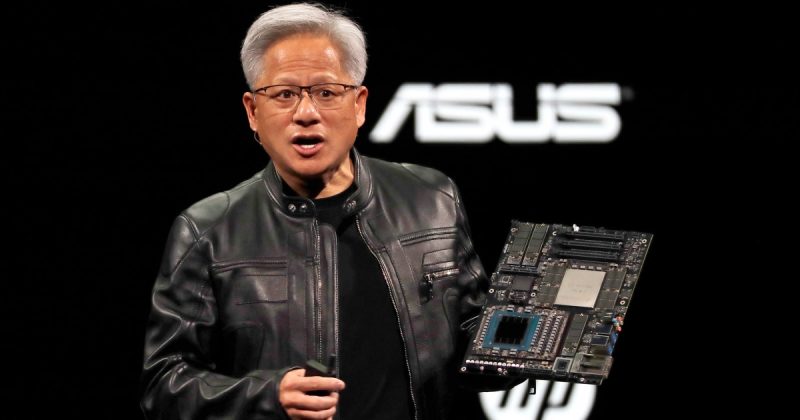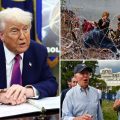
Nvidia CEO Jensen Huang has voiced his strong approval of President Donald Trump’s decision to revise US export restrictions on artificial intelligence chips destined for China. Huang, speaking at Computex in Taipei, Taiwan, characterized the Biden-era restrictions as a “failure,” asserting they had cost Nvidia and other American companies billions of dollars in lost revenue.
The Biden administration implemented a three-tiered system of export controls aimed at limiting the global spread of advanced AI technology, effectively barring China from access. While the administration justified these measures as necessary to curb China’s technological advancement and potential military applications, critics argued the restrictions could harm US tech leadership in the long run.
Trump’s administration, however, announced plans to ease some of these restrictions, replacing them with a revised set of controls. Huang highlighted the significant impact of the previous restrictions, noting that Nvidia’s market share in China plummeted from nearly 95% at the start of the Biden administration in 2021 to 50% currently.
Huang attributed the decline not to a lack of competitiveness, but to the restrictions themselves. He pointed out that Chinese companies, barred from accessing American products, turned to domestic suppliers like Huawei and accelerated their own development. This, he argued, was fueled by the restrictions, providing Chinese companies with the incentive and government support needed to rapidly advance their AI capabilities.
He emphasized the significant talent pool and determination within China’s tech sector, stating that Chinese companies would prefer the US not to re-enter the Chinese market. Huang cited China’s substantial investment in AI, estimating a market value of $50 billion by next year, underscoring the potential opportunities and the competitive landscape.
Nvidia recently announced a write-off of approximately $5.5 billion in H20 AI chips specifically designed for the Chinese market, a direct consequence of the prior export restrictions. Huang expressed his hope that the US government would recognize the ineffectiveness of the ban and allow American companies to regain market share.
Huang’s comments came after he joined Trump on a Middle East trip alongside other tech leaders. He praised Trump’s policy reversal, stating that the president understands the importance of accelerating technological diffusion to maintain US competitiveness in the global AI race.
The Chinese government has consistently criticized US chip restrictions, viewing them as an attempt to stifle China’s technological progress. The recent easing of restrictions has not appeased China, with the Ministry of Commerce accusing the US of using export controls to suppress and contain China, pledging to use its anti-foreign sanctions law against those involved in enforcing the new measures.
This situation highlights the complex interplay between geopolitical tensions, technological advancement, and economic competition in the rapidly evolving world of artificial intelligence.










